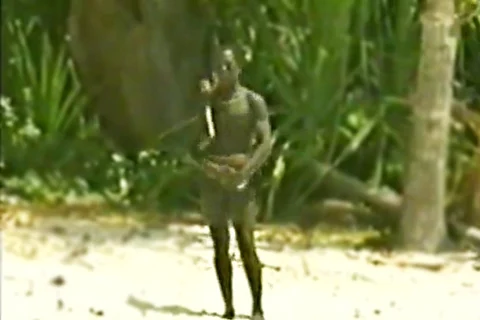

In the days post American citizen John Chau’s death on the North Sentinel Island, the Andaman and Nicobar police have been making several efforts to recce the area and ultimately retrieve his body, with little success. On their most recent mission on November 23, when the police and the Indian Coast Guard went there, they witnessed the tribespersons standing armed with their bows and arrows.
John, a 26-year-old missionary, had gone to the island to make contact and preach Christianity to the Sentinelese tribe, who have lived on the island for up to 60,000 years and have actively shunned all outside contact. According to the police, John was killed on November 17 by the Sentinelese. While this is not the first time the tribe has responded with violence to outsiders, there seems to be a bigger push to retrieve the body, which has not happened earlier.
Several experts think that these efforts should be called off immediately. In a joint statement, also signed by Islands in Flux - the Andaman and Nicobar Story author Pankaj Sekhsaria, several people who have knowledge of the Sentinelese have asked for the authorities to do the same.
“The media has reported nervous stand-offs between the teams seeking to land on North Sentinel to get the body and members of the Sentinelese community who clearly find these incursions unwelcome. Continuing with the efforts could well lead to further violence and completely unwarranted loss of life,” the statement says.
“The rights and the desires of the Sentinelese need to be respected and nothing is to be achieved by escalating the conflict and tension, and worse, to creating a situation where more harm is caused,” it adds.
The statement has been signed by Pankaj, anthropologist and author Vishvajit Pandya, senior researcher for Andaman and Nicobar Environment Team Manish Chandi, Zubair Ahmed, the editor of Light of Andamans, Anadaman Chronicle Editor Denis Giles, researcher, activist and author Madhusree Mukerjee and anthropologist Sita Venkateswar, who has done work on the Sentinelese as well.
Pankaj, whose book explores the history of the Andamans and the under-representation and marginalization of its tribes and culture, tells TNM, “It is clear that the Sentinelese are resistant to efforts of the authorities to enter their territory. And there is also clarity on the fact that the person who went there was in violation of law. Tension is already escalating. Why aggravate the whole situation further?”
Meanwhile there has been chatter on social media about how the Sentinelese have been known to resist outsiders in years past as well, and need to be mainstreamed or brought to book. However, Pankaj agrees that these demands, like the missions to ‘civilise’ led by colonisers years ago, and even John Chau’s own mission, are racist, and based on narrow ideas of modernity and its benefits.
“These tribes have been surviving and thriving for thousands of years, albeit with their limitations. Besides, history is witness to the fact that such efforts at mainstreaming and ‘civilisation’ have resulted in little benefit for the indigenous tribes. The Great Andamanese story is a prominent example,” he says.
The Great Andamanese – a group of 10 tribes bunched together under one umbrella term by the British – were about 5,000 in number before the British invasion in the 1850s. After suffering heavy casualties to defend their territory, hundreds fell prey to epidemics brought in by the colonisers against which they had no immunity. Others perished from disease and abuse in imprisonment.
Today, only about 50 of the Great Andamanese survive on Strait Island in the Andamans. Thousands of years of culture and language have been lost, the once thriving tribes are now dependent on the authorities for sustenance.
There is also the question of how the Sentinelese, who are believed to be descendants of the first African people, can be “brought to book”, when their moral and ethical framework is starkly different from our own. The fear of casualties on both sides is too great even if efforts were made to capture them.
“With historical evidence in mind, there is no longer any justification to keep trying to establish contact and mainstream them. It has only brought cultural and physical destruction to the tribes, and driven many to extinction,” Pankaj says.